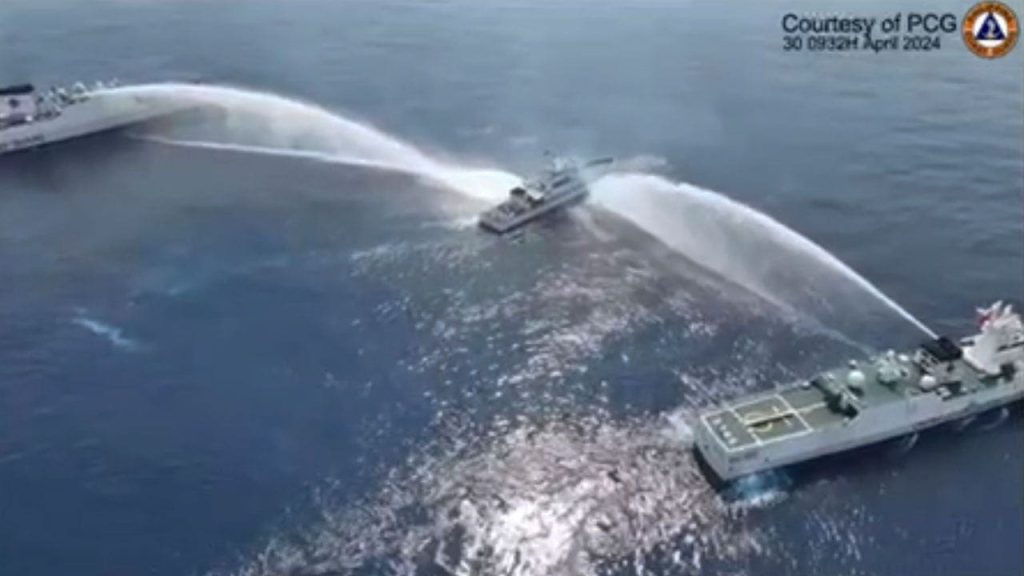The recent incident in the South China Sea saw Chinese coast guard ships firing water cannons at two Philippine patrol vessels near the disputed Scarborough Shoal, resulting in damage to both ships. This flare-up is part of an ongoing territorial conflict between China and the Philippines in the region. Despite the dangerous maneuvers executed by the Chinese ships, there were no immediate reports of injuries in the incident. The Philippine vessels involved, a coast guard ship and a fisheries vessel, sustained damages to their decks and electrical systems.
The Philippine government issued a strong protest against China’s actions, condemning their illegal and irresponsible behavior which they say disregards the Philippines’ lawful rights and entitlements in their Exclusive Economic Zone. The Philippine task force dealing with territorial disputes expressed concern over China’s actions and the damage inflicted on the Philippine vessels. While the vessels were able to continue their patrol despite the hostilities, the incident highlights the escalating tensions in the region. China defended its actions as necessary to protect its maritime rights and sovereignty in the disputed waters.
China has also re-installed a floating barrier at the entrance of the shoal’s fishing lagoon, further complicating the situation. China asserts its sovereignty over most of the South China Sea, which is a vital global trade route. The territorial disputes also involve other countries such as Vietnam, Malaysia, Brunei, and Taiwan, adding to the complexity of the situation. The Philippines and China have been engaged in frequent skirmishes, raising concerns of a potential armed confrontation between the two nations that could have broader implications involving other countries, including the United States.
The United States, while not claiming any territory in the South China Sea, has reiterated its commitment to defend the Philippines, a longstanding treaty ally, in case of an armed attack, including in the contested waters. The involvement of the US in the regional conflict adds another layer of complexity and potential escalation. The fear of the territorial conflict leading to a military clash between China and the US is a cause for concern, given the strategic importance of the South China Sea and its significance for global trade and security. The situation remains volatile, with both China and the Philippines standing firm in their positions, raising the risk of further confrontations in the future.
The ongoing tensions in the South China Sea underscore the challenges of managing territorial disputes in a region with competing claims and strategic interests. The incident between China and the Philippines is just one example of the complex geopolitical dynamics at play in the region. The involvement of multiple countries with overlapping claims to the waters further complicates efforts to find peaceful resolutions to the conflicts. The international community continues to monitor the situation closely, aware of the potential ramifications of any escalation in hostilities in one of the world’s most important maritime regions.
Efforts to de-escalate the tensions and find diplomatic solutions to the territorial disputes are crucial to maintaining peace and stability in the South China Sea. The recent incident serves as a reminder of the need for all parties involved to exercise restraint and adhere to international law in resolving their differences. Dialogue and negotiation remain the most effective means of addressing the complex issues at stake and preventing further incidents that could lead to a dangerous escalation. The international community, including the US, plays a pivotal role in promoting a peaceful resolution to the conflicts in the region and upholding the principles of freedom of navigation and respect for maritime laws.


